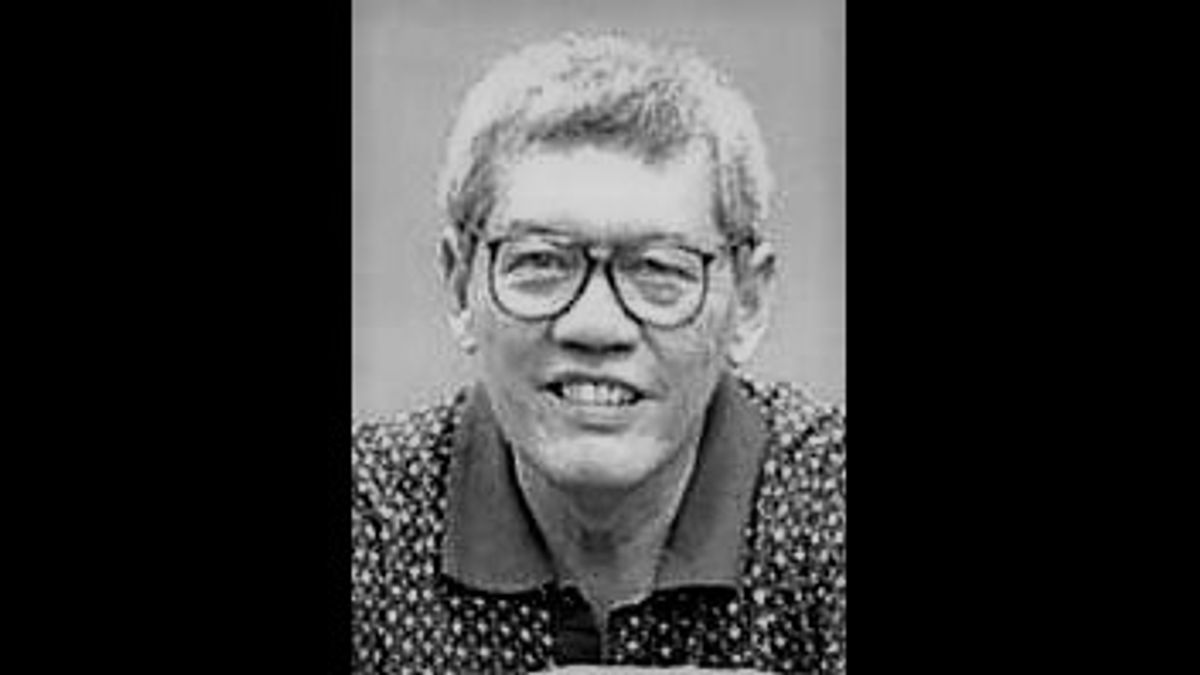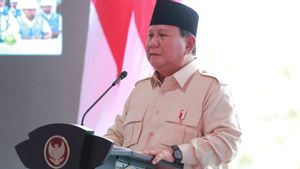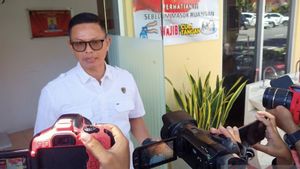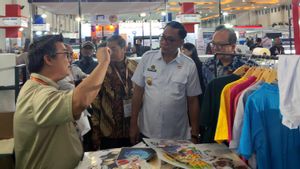JAKARTA - Public scholar Arief Budiman or Soe Hok Djin died. During his lifetime, the deceased was known as a philosophy and literary lover. As a thinker, he changed his way of life to become an activist when his younger brother, Soe Hok Gie died.
This person who is familiarly called Djin breathed his last, today, April 23. The lecturer at Satya Wacana Christian University and the University of Melbourne died in a hospital near Salatiga, Central Java due to Parkinson's disease.
As told by his colleague who is also a researcher, Andreas Harsono via his personal website, since Djin's high school, who was born on January 3, 1941 in Jakarta, has liked literature and philosophy. He admired Albert Camus and Jean-Paul Sartre whose books had not entered Indonesia at that time.
He has further explored the world he likes since studying at the Faculty of Psychology, University of Indonesia. By then Arief had mastered the difficult parts of Sartre's Being and Nothingness. The philosophy that is commonly referred to as existentialism is not confusing for him. He even wrote a thesis with Chairil Anwar's focus from the existentialist side.
Arief, according to Andreas, appears to be someone who is able to digest complex problems and describe them simply. In his thinking, he practiced what was called "idealization", that is, capturing reality by shaping it in ideas and grasping the highlighted problem clearly and simply.
From there, it seems natural that there has been a transformation from Arief, a philosophy fan to an activist. From a man who moves passionately in art and thought, to someone who is ready to take to the streets as a political statement.
According to Andreas, Arief looks like Sartre, one of the philosophers that Arief admires. This philosopher not only wrote thick thoughts, but was also a mobilizer of mass action. Sartre strongly opposed capitalism and imperialism.
Start to move
In the world of activism, Arief has the best place, a special wabil in the minds of his friends. He is known as a patient figure. He is also a good listener, even to hear the harshest critics.
Andreas said there were other factors that made Arie "move", none other than since Soe Hok Gie, his younger sibling, died in an accident on Mount Semeru. Arief and Gie are different. Their social world is different.
Gie is familiar with the activists of the Socialist Student Movement and the Indonesian Socialist Party (PSI) which was dissolved by Soekarno. Gie is more familiar with political activists. Meanwhile, Arief mingled more with artists such as Nashar, Oesman Effendi, Rendra, and other writers including Andreas Harsono.
According to Andreas, when Arief wrote the obituary about his younger brother, he felt moved by Gie's struggle, which he probably didn't care about. Gie took a new look. At that time, Gie felt that his struggle to help the little people had more enemies. Said Gie, "sometimes I feel really lonely."
However, after the incident at the foot of Semeru, Arief knew that this was not the case. Next to his brother's coffin he said, "Gie you are not alone."
Since then Arief proved it by moving as an activist. He knows that an honest and courageous person who fights injustice will receive the silent support of the crowd.
In the 1970s Arief led the anti-corruption movement. At that time he saw the Soeharto government grow into an authoritarian state that took personal benefits and ignored democratic values.
Quoting Fahri Salam's writing at Tirto.id, after graduating from a PhD in sociology from Harvard University, Arief taught at Satya Wacana Christian University, Salatiga. During this period, Arief was active in social and cultural studies, giving birth to many students who were critical of development problems in the Soeharto era.
This campus is also the epicenter of the people's and student movements against the Kedungombo Reservoir in Central Java. In addition, Arief's writings have also been published in newspapers such as Kompas, Sinar Harapan, and Indonesia Raya.
His well-known books include The Democratic Path to Socialism: The Experience of Chile under Allende's (1987), the Sexual Division of Labor (1981), and the Pancasila Economic System and Social Sciences in Indonesia (1990).
The English, Chinese, Japanese, Arabic, and French versions are automatically generated by the AI. So there may still be inaccuracies in translating, please always see Indonesian as our main language. (system supported by DigitalSiber.id)













